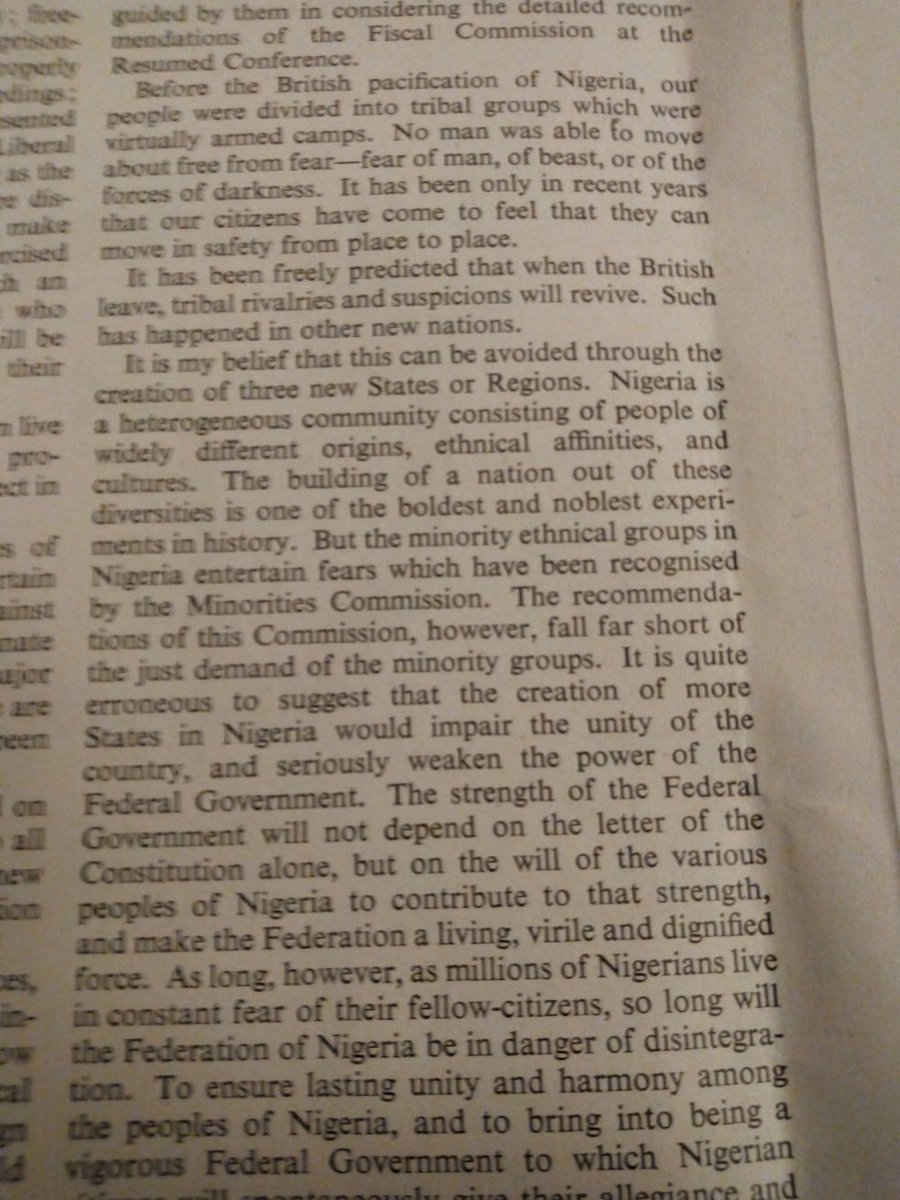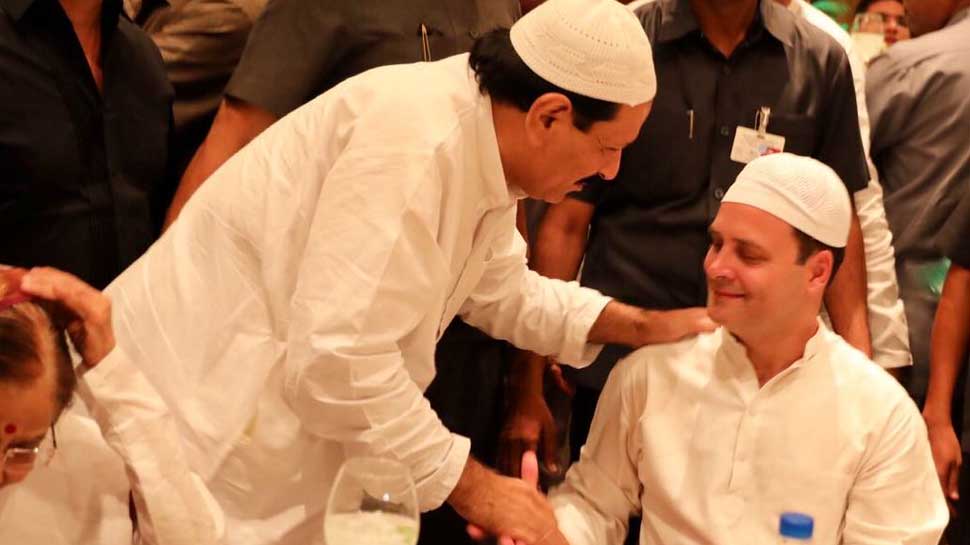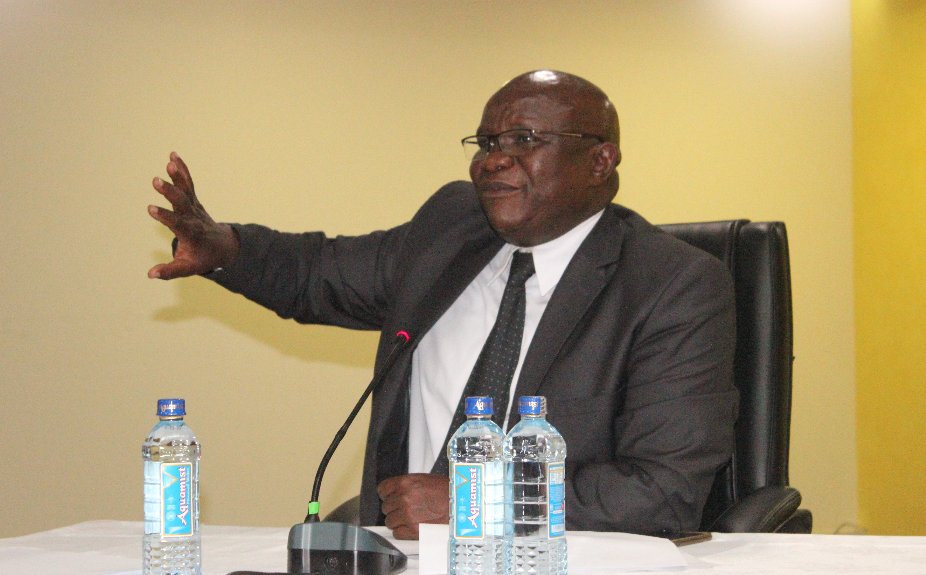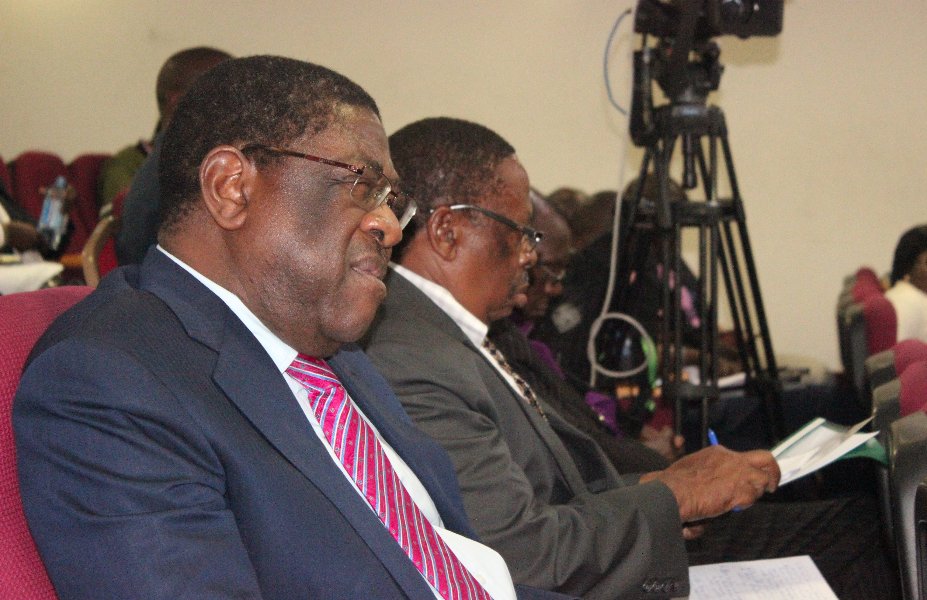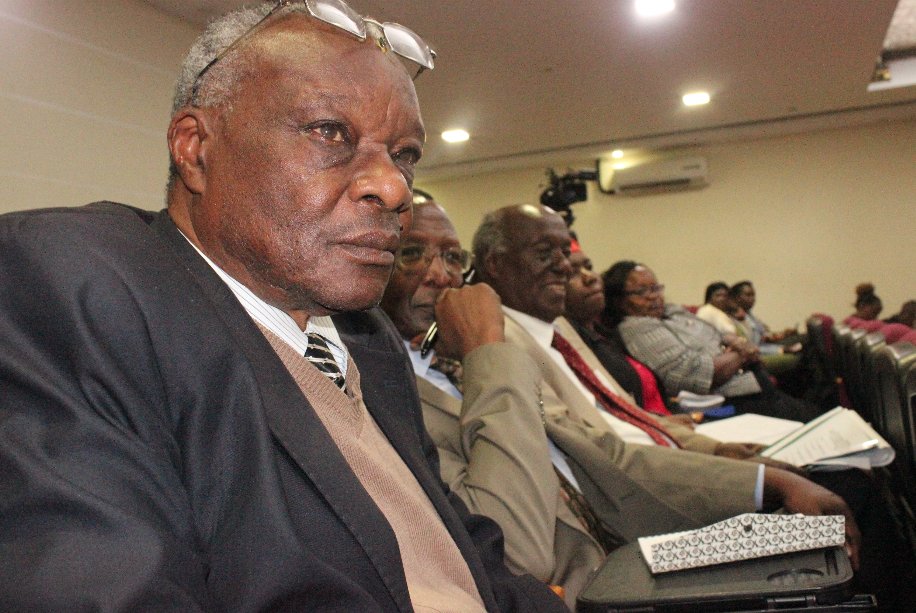Today, we'll discuss regional ethnic minority fears before independence, fears of Northern political domination and 1959 elections that determined Nigeria's first post-colonial government.
Awo's AG, which had wanted the roughly 500,000 Yorubas living in the Northern Region to join their "kith-and-kin" in the West
In an August 1958 letter to the Colonial Secretary, Governor Robertson wrote: "Perhaps the single biggest drawback to a strong Nigeria is the fact
Zik did not seem as worried about Bello and NPC in a post-colonial Nigeria as Awo.
Perhaps we shall stop there today. Tomorrow we shall discuss one of the great mysteries in Nigerian political history: why AG and NCNC did not form Nigeria's first post-colonial government
Till tomorrow then, thanks for reading and have a great day folks!😃
